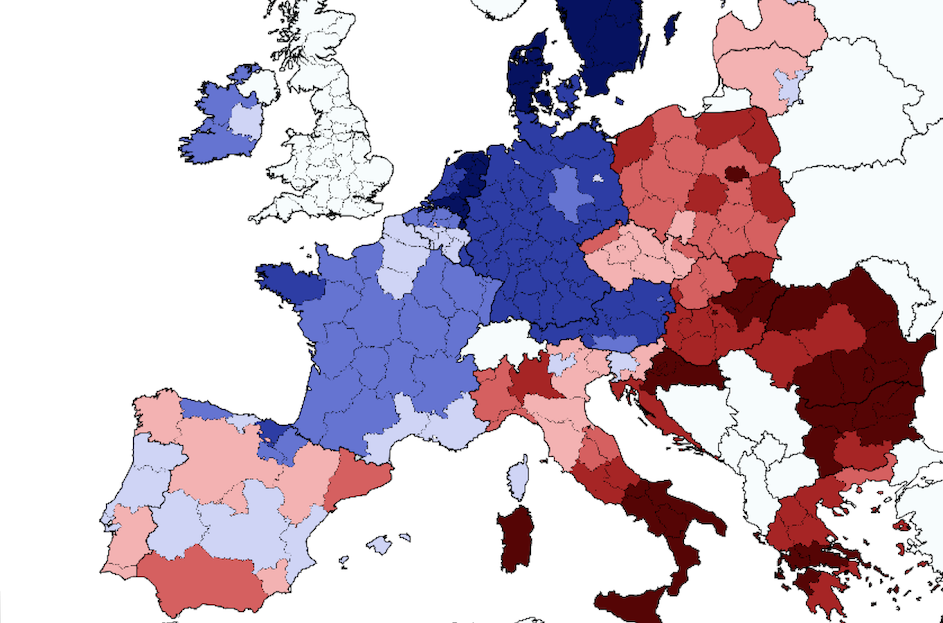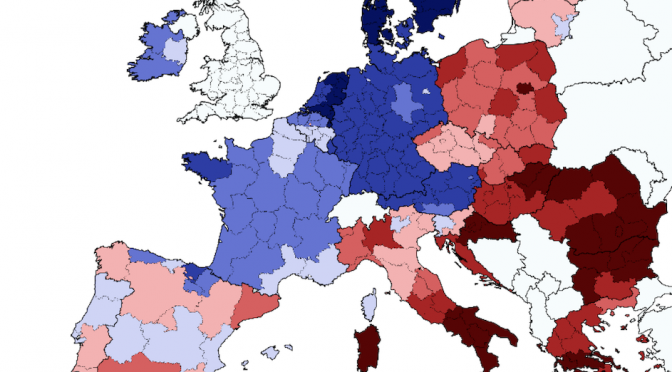For about a decade now, the Quality of Government Institute, at the University of Gothenburg in Sweden, has been evaluating the quality of government of the various regions in Europe. By measuring impartiality, corruption, and quality, they generate a so-called European Quality of Government Index (EQI), a number that describes the overall quality of government of that region. Consistently, the Basque Autonomous Community has ranked high in this measure: as the report emphasizes, “what region you live in matters just as much as what country you live in.”

- Overall, the quality of government in Spain is evaluated as being very different from region to region, with one of the largest variations in all of Europe. The Basque Autonomous Community (BAC), the political entity comprising Bizkaia, Gipuzkoa, and Araba, has the highest EQI in Spain, with Navarra also very high. In fact, in the four surveys that the Quality of Government Institute has conducted so far, the Basque Country has ranked at the top in three, with an EQI that has increased since that first survey. Both regions rank much higher than the average in Spain. On the other hand, other regions of Spain have dropped, indicating an ever-widening gulf in the perceived quality of government across Spain.
- In France, the provinces of Lapurdi, Zuberoa, and Nafarroa Beherea are lumped into the much larger political unit of Aquitaine. Aquitaine ranks in-between the BAC and Navarra in terms of EQI. While France also exhibits significant regional disparity in terms of EQI, overall it ranks much higher than Spain, and Aquitaine falls a bit higher than the national average.
- Why do these numbers matter? As highlighted by the authors of the report, the quality of government of a region is “a key factor for understanding its social, economic and political progress.” In countries where there is a large variation in the quality of government, this inequality could lead to greater concentration of economic power in high-ranking regions, further driving inequality. At the same time, regions with a low EQI and thus higher dissatisfaction with government tend to vote for populist parties and politicians.
- Levels of corruption also impact public health. Regions with high corruption tend to see more issues with the distribution of medical supplies and a concentration of resources in the hands of the wealthy, making access harder for the greater populace.
- The quality of government also relates to how well citizens perceive their government responded to the COVID-19 pandemic. For example, in regions where the government is viewed as less corrupt, there tends to be less worry about the economic impacts of COVID.
- Of course, a single number cannot capture all of the nuances of a real population. However, a measure such as the EQI provides some high-level perspective on the current status and temporal evolution of a place as complex as Europe. As the authors say, “The purpose of the EQI is to provide scholars and policy makers with a ‘big picture’ metric of sub-national governance… such that regions in one country can be compared with regions in any other member state.”
Note that, if you get this post via email, the return-to address goes no where, so please write blas@buber.net if you want to get in touch with me.
Discover more from Buber's Basque Page
Subscribe to get the latest posts sent to your email.


